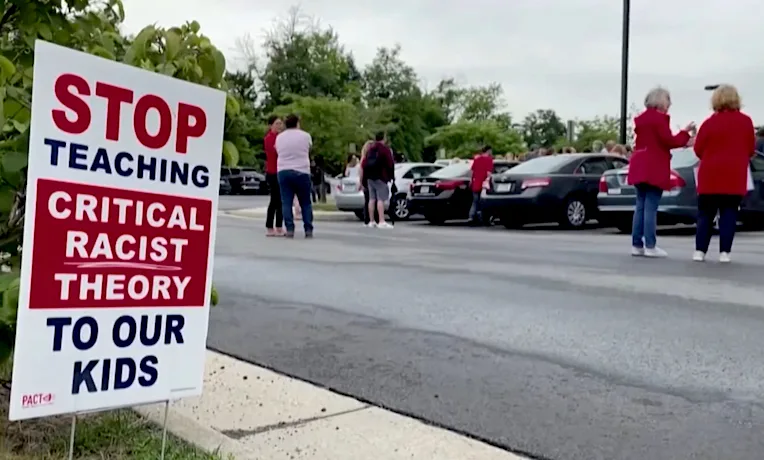
When he started to do the research for his new book, The Hidden Roots of White Supremacy, Robert P. Jones had a different idea in mind. But, once he’d reached back as far as he could into his family’s history, he realized that no understanding of racism in the United States would be complete without recognition of the role of the 15th century doctrine connecting the genocide and land dispossession of Native Americans with the enslavement and oppression of African Americans throughout our history.
Jones argues that these actions were given not just legal, but religious legitimation by the Doctrine of Discovery: “the belief that God had designated all territory not inhabited or controlled by Christians as their new promised land.”
Drawing on case studies from Mississippi, Oklahoma, and Minnesota Jones demonstrates the doctrine’s devastating influence, highlighting the importance of recognizing the role of White Christians in this devastation, and how some communities have faced the violence of the past in order to foster healing and a shared American future.
Jones excavates this history in order to call White Christians, and all Americans, to reckon with our past in order to forge a different path forward.
Initially, you were going to write a book about racism in the United States, focused on relationships, actions, events, and histories where Black and White people are entangled. But that really got expanded. What happened?
Well, research happened. Thinking about my own family’s history and kind of tracing that history all the way back was an important part of the journey. But, what I realized, for example, is that that focus was very much a kind of Black/White binary focus; and, being from the South, that was primarily the lens through which I was kind of viewing my family’s history.
But when I started digging further back, you know, the family lore kind of stopped with: “Oh, well, we got this land in the 1820s via this land lottery that the state of Georgia was performing. And then, you know, we set up a shop there. It was on my mother’s side of the family. There was evidence [among them] of people who were not the kind of wealthy planter class. But, they still enslaved other people, even as a kind of lower class subsistence farmer. But what I didn’t ever push back on was where did that land come from that was suddenly available in the 1820s and 1830s in a land lottery?
And, you know, once you kind of ask that question, it really opens up the aperture and you realize it came from the Cherokee, who were forcibly removed from that land and forced to walk what became the Trail of Tears. Upwards of 20% or more died on that trek all the way to Oklahoma.
So in the book I talk about my home state of Mississippi, but also about the Trail of Tears—and really the story behind that story, which is our relationship to the original inhabitants of this land.
You take us to the Doctrine of Discovery. What is just a very basic definition of that doctrine and where does it come from?
From 1450-1493 there were these papal decrees that were published at the behest of Western political powers, such as the kings of Spain and Portugal. What spurred them was the lands that were previously unaccounted for. And so the real question was: What rights do we have vis-a-vis these people in these lands? And it basically says that if you encounter any lands where the people are not Christian, you have permission and the blessing of the church and the power of the state to conquer, to kill, to subdue, and to reduce their persons to perpetual slavery.
How does the Doctrine of Discovery really kind of lead us back to both anti-Black racism and the forced removal and attempted genocide of Native Americans?
It’s the thing that unleashes the entire colonial project, including the transatlantic slave trade and the conquest of the Americas. So again, it is the version of Christianity that lands on these shores—the dominant expression of Christianity that lands here. And so all these ideas that we have—manifest destiny, the idea of America as a new kind of promised land or a new Zion—these are all read straight out of this idea of the Doctrine of Discovery and the idea that this land was somehow divinely or providentially reserved for the exploitation by this people group from Europe.
But it’s remarkably present in our founding documents. So even the Declaration of Independence has this phrase about “merciless [Indian] savages.” The Constitution explicitly excludes Native Americans from the rights in that document.
How was the Doctrine of Discovery used against Native Americans in the Mississippi Delta?
I begin with Emmett Till, and his murder in Mississippi. He was born in 1941, but his story begins 400 years before that with Hernando de Soto, the Spanish conquistador, showing up on the banks of the Mississippi in the early contact with Native Americans there—which was violent and bloody.
So there’s the killing and removal of Indigenous people in Mississippi, Alabama, Georgia—all these Southeastern states that had Native American populations. In the early 1800s they began to be pushed off the land and then were forcibly pushed off the land [even more rapidly] under Andrew Jackson’s presidency. It was the largest forced migration in the continent’s history. Some 80,000 people were forced from their land, and maybe 20% of them died en route to what is now Oklahoma.
So that cleansing happens really in the name of the moral justification that comes from Christianity. There are these phrases, like “savages,” “uncivilized,” “heathen”—they come right out of this idea of Christian superiority [from the Doctrine of Discovery], and they justify this horrific violence toward Native Americans.
And then right after that, we got a system where if you were of European descent and agreed to come down and homestead, you could just get a plot of land that would be farmed and worked by enslaved labor.
And then we arrive back at Emmett Till. How does Emmett Till tie into this history?
His mother was born in Mississippi, in the Delta, but her family was part of the Great Migration—so they fled to Chicago. Emmett Till was actually back visiting his relatives in Mississippi; he was visiting his uncle in the Delta, not far from where his mother was born. He’s a teenage boy and he evidently whistled at a woman running a store. He is then tortured and killed by two White men who were subsequently tried and exonerated within an hour. They later confessed to the crime, but were never punished because they had already been acquitted.
I think many people heard that story and it’s so horrific and so brutal and so painful. But it becomes much less surprising when you see it against the backdrop of a worldview fueled by a kind of White supremacy; fueled by this version of Christian understanding rooted in the Doctrine of Discovery.
If we turn to the present, I’m thinking about the panics over critical race theory, book bans, dramatic changes to school curricula in places like Florida and Texas and across the South. Is the Doctrine of Discovery at play in these issues?
I think it’s at play. And what’s preventing us from seeing it for what it really is is that it remains the blessing of the church on racial violence. That’s a hard thing to see, I think, but I think it’s an important thing to see if we’re not going to repeat those mistakes in the future. It is this kind of coverup; this attempt to forget; a kind of forced amnesia.
It’s quite remarkable really. And I’m reminded of this searing quote from James Baldwin whenever this topic comes up. He talks about what Black people thought about White people. What he says is that Black people thought of White people as the slightly mad victims of their own brainwashing.
There is a sense that we (White people) have lied to ourselves for so long that we don’t even know who we are anymore; that we’ve not been willing to tell the truth about our lives, about the world and about our past. And that can only lead to a kind of psychosis I think we’re seeing in our politics, in everything from the willingness to believe these wild conspiracy theories to going to such great lengths not to count African American history as a high school AP credit.
In the state of Arkansas… and in Florida they’re doing some very similar things [to cover up the treatment of African American and Indigenous people by White Christians]. These are fairly extreme responses. And I think they’re—maybe the better word is desperate—responses to kind of keep it covered up, right? Because I think if it all sees the light of day it’s, it’s just purely unjustifiable.
On that note, what do you take away from this as a White Christian American?
What I’d say is that we’re going to be better if we remember; we’re going to be stronger if we remember; and I think that’s one of the key things, why this work is important. White Christian people know that things are going to have to change and that we’re going to have to be held accountable in a way that changes the way things are in the future.


